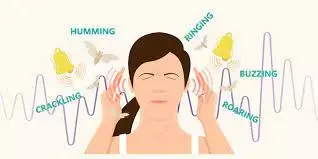- Home
- Medical news & Guidelines
- Anesthesiology
- Cardiology and CTVS
- Critical Care
- Dentistry
- Dermatology
- Diabetes and Endocrinology
- ENT
- Gastroenterology
- Medicine
- Nephrology
- Neurology
- Obstretics-Gynaecology
- Oncology
- Ophthalmology
- Orthopaedics
- Pediatrics-Neonatology
- Psychiatry
- Pulmonology
- Radiology
- Surgery
- Urology
- Laboratory Medicine
- Diet
- Nursing
- Paramedical
- Physiotherapy
- Health news
- Fact Check
- Bone Health Fact Check
- Brain Health Fact Check
- Cancer Related Fact Check
- Child Care Fact Check
- Dental and oral health fact check
- Diabetes and metabolic health fact check
- Diet and Nutrition Fact Check
- Eye and ENT Care Fact Check
- Fitness fact check
- Gut health fact check
- Heart health fact check
- Kidney health fact check
- Medical education fact check
- Men's health fact check
- Respiratory fact check
- Skin and hair care fact check
- Vaccine and Immunization fact check
- Women's health fact check
- AYUSH
- State News
- Andaman and Nicobar Islands
- Andhra Pradesh
- Arunachal Pradesh
- Assam
- Bihar
- Chandigarh
- Chattisgarh
- Dadra and Nagar Haveli
- Daman and Diu
- Delhi
- Goa
- Gujarat
- Haryana
- Himachal Pradesh
- Jammu & Kashmir
- Jharkhand
- Karnataka
- Kerala
- Ladakh
- Lakshadweep
- Madhya Pradesh
- Maharashtra
- Manipur
- Meghalaya
- Mizoram
- Nagaland
- Odisha
- Puducherry
- Punjab
- Rajasthan
- Sikkim
- Tamil Nadu
- Telangana
- Tripura
- Uttar Pradesh
- Uttrakhand
- West Bengal
- Medical Education
- Industry
Half of the cancer patients on chemotherapy have hearing issues: study

Half of the cancer patients on chemotherapy have hearing issues according to a recent study published in the BMJ Supportive & Palliative Care
Little is known about hearing loss and tinnitus associated with neurotoxic chemotherapy.
The study evaluated for differences in occurrence rates and effects of hearing loss and tinnitus in survivors who received platinum alone, a taxane alone or platinum and taxane containing regimen.
A total of 273 survivors with breast, gastrointestinal, gynaecological or lung cancer completed self-report measures of hearing loss and tinnitus and had an audiometric assessment that obtained pure tone air conduction thresholds bilaterally at frequencies of between 0.25 kHz to 16.0 kHz.
Each survivor's audiogram was evaluated using the National Health and Nutrition Examination Survey-modified Occupational Safety and Health Administration standards to adjust for age-related and gender-related changes in hearing.
Survivors were classified as having hearing loss if they scored poorer than the 50th percentile for their age and gender at any frequency.
Survivors were categorised as having tinnitus if they reported that for >10% of their time awake, they were consciously aware of their tinnitus.
Differences among the chemotherapy groups were evaluated using parametric and non-parametric tests.
Results:
- No differences were found among the three chemotherapy groups for most of the demographic and clinical characteristics.
- Occurrence rates for audiogram-confirmed hearing loss ranged from 52.3% to 71.4%.
- Occurrence rates for tinnitus ranged from 37.1% to 40.0%.
- No differences were found among the three chemotherapy groups in the occurrence rates or effects of hearing loss and tinnitus.
These findings suggest that regardless of the chemotherapy regimen common mechanistic pathway(s) may underlie these two neurotoxicities.
Reference:
Cheung S, Henderson-Sabes J, Mastick J, et alCancer survivors and neurotoxic chemotherapy: hearing loss and tinnitusBMJ Supportive & Palliative Care Published Online First: 27 July 2022. doi: 10.1136/spcare-2022-003684
Keywords:
Cancer, survivors, neurotoxic, chemotherapy, hearing, loss, tinnitus, Steven Cheung, Jennifer Henderson-Sabes, Judith Mastic, Gary Abrams, Karin Snowberg, Emely Alfaro, Marisa Quinn, Steven Paul, Bruce Cooper, Margaret Wallhagen, Yvette Conley, Jon Levine
Dr. Shravani Dali has completed her BDS from Pravara institute of medical sciences, loni. Following which she extensively worked in the healthcare sector for 2+ years. She has been actively involved in writing blogs in field of health and wellness. Currently she is pursuing her Masters of public health-health administration from Tata institute of social sciences. She can be contacted at editorial@medicaldialogues.in.
Dr Kamal Kant Kohli-MBBS, DTCD- a chest specialist with more than 30 years of practice and a flair for writing clinical articles, Dr Kamal Kant Kohli joined Medical Dialogues as a Chief Editor of Medical News. Besides writing articles, as an editor, he proofreads and verifies all the medical content published on Medical Dialogues including those coming from journals, studies,medical conferences,guidelines etc. Email: drkohli@medicaldialogues.in. Contact no. 011-43720751


